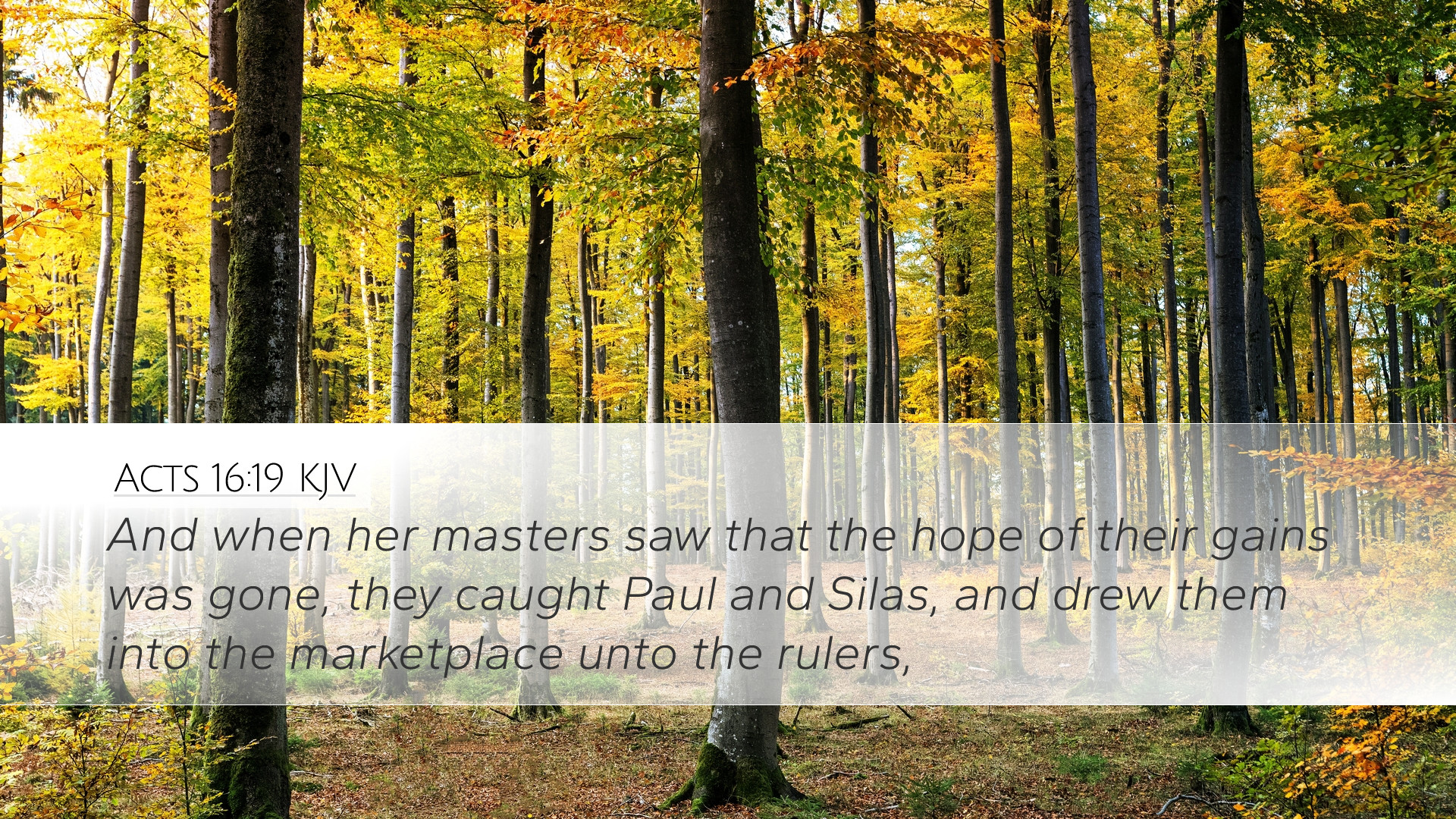Commentary on Acts 16:19
Verse Context: Acts 16:19 states, "But when her owners saw that their hope of profit was gone, they seized Paul and Silas and dragged them into the market place unto the rulers." This verse follows the account of a slave girl who was possessed by a spirit of divination, which Paul expelled. The ramifications of this act lead to significant events in the ministry of Paul and Silas.
Historical and Cultural Context
The slave girl in this passage represents a broader social issue of the time—slavery and exploitation in the Roman Empire. The presence of a spirit of divination indicates the pervading belief in supernatural powers and the reliance on such practices for economic gain. Paul’s action not only liberates the girl but also disrupts the local economy, thus inviting the wrath of her owners.
Theological Insights
1. Spiritual Authority: This incident demonstrates the authority of the apostles over demonic forces. Paul’s command to the spirit serves as a reminder of the power vested in believers through Christ. Albert Barnes notes that this act exemplifies the fortitude of the apostles in the face of spiritual opposition.
2. The Cost of Discipleship: By liberating the slave girl, Paul and Silas incur significant consequences. Adam Clarke relates this to the concept of sacrifice in ministry, underscoring the reality that discipleship may lead to persecution and suffering. This highlights the cost of following Christ and the reality that true liberation often comes at a price.
Character Analysis
Paul and Silas: The apostolic courage displayed by Paul and Silas is remarkable. Matthew Henry emphasizes their unwavering commitment to the work of the Gospel, undeterred by potential backlash. Their willingness to act against injustice reflects the character of Christ Himself.
The Slave Owners: The owners of the slave girl, motivated by greed and the loss of their source of income, embody the prevailing attitudes of exploitation and commodification of individuals. Their actions reveal a spiritual blindness and a refusal to recognize the value of human life over financial profit.
Lessons for Modern Believers
This passage offers valuable lessons applicable to today’s context:
- Advocacy for the Oppressed: Just as Paul acted for the liberation of the girl, believers today are called to advocate for those who are marginalized and oppressed in society.
- Understanding Consequences: The response of Paul and Silas reminds us that our actions in faith could lead to unforeseen consequences. This challenges believers to weigh the cost of discipleship seriously.
- The Nature of True Freedom: True freedom is spiritual in nature. While the girl experienced physical liberation, spiritual freedom is found in relationship with Christ. This aspect underscores the holistic approach to salvation.
Conclusion
Acts 16:19 serves as a pivotal moment in the narrative of the early church, illustrating the powerful impact of the Gospel in a socio-economic context. It also exemplifies the ethical and moral challenges faced by believers in their stance against injustice. The combined insights from Matthew Henry, Albert Barnes, and Adam Clarke provide a nuanced understanding of the complexities involved in this verse, inviting pastors, students, and theologians to reflect deeply on their own roles in advocating for justice and righteousness in contemporary society.


